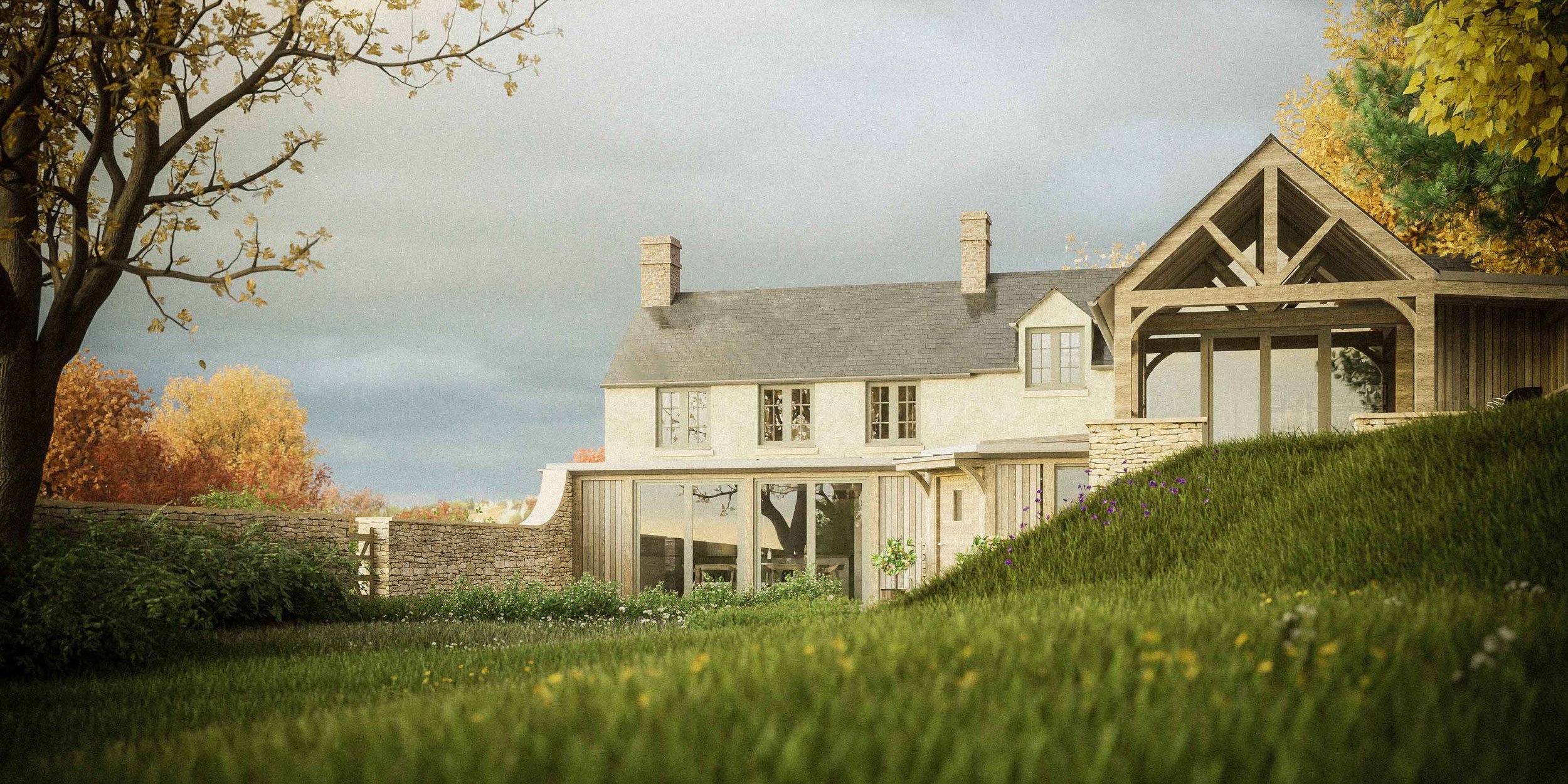
Creative & Sustainable Design for Residential Projects
Joshua Hovey is a RIBA Chartered Architect & Certified Passivhaus Designer, Serving Gloucestershire, Wiltshire and Surrounding Areas.
Sustainable & Innovative
New-Build
We help self-builders looking to design their dream eco-home, and land owners looking to maximise the potential of their plot. We have a proven track record of securing planning permission within challenging design constraints such as conservation areas, national parks, AONBs and near listed buildings.
Contemporary Extensions
We design beautiful contemporary extensions. Transform your living space by adding natural light, improving the connection with the outdoors and creating harmony between spaces.
Listed and Heritage Property Alterations
Do you have a listed building or period property which lacks natural light, feels disconnected from the outside and has poor flow between living spaces? We are experts at turning period properties into functional homes, customised for modern living.
Sensitively Designed Barn Conversions
We are architects skilled at working with listed buildings such as barn conversions, in conservation areas and AONBs and with complex design constraints. Let us help you to make the best use of your existing building.
Custom Home Architects | Joshua Hovey Architects
Key Design Considerations When Planning a Custom Home Project
Defining Your Vision and Requirements
When planning a custom home project, defining your vision and requirements is the first crucial step. Custom home architects should work closely with clients to understand their needs, preferences, and lifestyle. This includes discussing the desired architectural style, functional requirements, and special features. By clearly outlining these elements, architects can create a design that reflects the client's personal taste and functional needs, ensuring a home that is both unique and practical.
Navigating Planning and Building Regulations
Understanding and adhering to planning and building regulations is essential for any custom home project. Architects must ensure that the design complies with local planning policies, building regulations, and any relevant conservation guidelines. This includes obtaining necessary planning permissions and approvals. By carefully navigating these regulations, architects can avoid potential issues and ensure the project progresses smoothly from concept to completion.
Integrating Sustainable and Energy-Efficient Solutions
Incorporating sustainable and energy-efficient solutions is a key consideration for custom home projects. Architects should prioritise the use of eco-friendly materials, energy-efficient systems, and renewable energy sources. This includes designing for natural ventilation, optimal insulation, and low-energy lighting. By integrating these sustainable practices, architects can create a home that is not only environmentally responsible but also cost-effective in terms of energy consumption and long-term maintenance.
Harmonising with the Site and Surroundings
Custom home architects must design a home that harmonises with the site and its surroundings. This involves understanding the topography, climate, and landscape of the location. Architects should consider factors such as natural light, views, and privacy when positioning the home and planning its layout. By designing with the site in mind, architects can create a home that integrates seamlessly with its environment and enhances the overall living experience.
Enhancing Functionality and Flexibility
Functionality and flexibility are central to a successful custom home design. Architects should focus on creating versatile spaces that can adapt to changing needs over time. This includes designing open-plan areas, ample storage solutions, and flexible room layouts. By prioritising functionality and adaptability, architects can ensure that the home remains practical and comfortable as the occupants' needs evolve.
By focusing on these key design considerations, custom home architects can create projects that reflect the client's vision, comply with regulations, incorporate sustainable practices, harmonise with the site, and enhance overall functionality and flexibility. This approach ensures a bespoke home that is not only aesthetically pleasing but also tailored to the client’s lifestyle and long-term needs.









